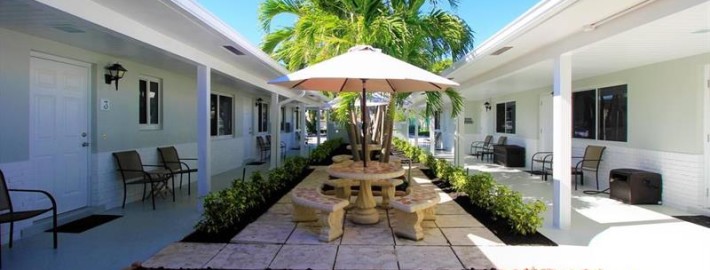By Tom K. Wilson
While many investors see single-family homes as their “bread-and-butter” investment, investing in commercial properties is an option that can also help you achieve your financial goals.
“Commercial” in its broadest lay vernacular includes multifamily apartments, however, the true industry definition separates multifamily properties (over five residential units) from true commercial, such as retail, office space, industrial, self-storage or medical centers.
I’m often asked what kinds of properties I recommend. There is, of course, no one size that fits all investors or markets. While in a normal market multifamily properties are a natural progression from single family homes, this is anything but a normal market and currently there are too many multifamily buyers chasing too few deals, so it currently has lower CAP* rates or returns than pure commercial.
Here are five reasons to consider commercial properties for your portfolio.
#1 HIGHER ROI
Commercial properties often have higher and more predictable return-oninvestment than single-family homes, in part due to the economies of scale from investing in a larger property not usually available to the small investor.
For example, a current commercial retail center that we are acquiring has an 8.2 CAP rate and a four-year internal rate of return* of 12.0%. When you can borrow money at 4.25% and invest it in something yielding 12.0%, that’s worth considering!
#2 FEWER HEADACHES
 It’s generally easier to manage one large property through a professional property management firm than to manage scattered single-family homes. Also the business tenants you get in retail or office space are usually of higher quality than most residential tenants. Business tenants have higher credit/risk scores, have pride of ownership in their businesses and want to protect their livelihoods. As a result, they have an interest in taking care of the property.
It’s generally easier to manage one large property through a professional property management firm than to manage scattered single-family homes. Also the business tenants you get in retail or office space are usually of higher quality than most residential tenants. Business tenants have higher credit/risk scores, have pride of ownership in their businesses and want to protect their livelihoods. As a result, they have an interest in taking care of the property.
Many commercial properties are NNN* (triple net), so the tenant pays most of the expenses including taxes, insurance, and maintenance making the owner’s expenses very predictable and consistent.
#3 STABLE CASH FLOW
 Commercial leases are typically 5-10 years in length vs. annually for single-family homes. Additionally, commercial leases include annual bumps in rent and options to-renew. As a result of all these factors, cash flows are more predictable.
Commercial leases are typically 5-10 years in length vs. annually for single-family homes. Additionally, commercial leases include annual bumps in rent and options to-renew. As a result of all these factors, cash flows are more predictable.
#4 NO 10-MORTGAGE FANNIE MAE LIMIT
Any loans taken by the owner or syndicate do not count against your 10-mortgage limit because they are in the name of the owning entity and not on your personal credit. This enables you to put more of your capital to work.
#5 APPRECIATION MULTIPLIERS
Unlike single-family homes, which are strictly valued based on market demand, or ‘sales comps’, commercial properties are valued as a multiple of their Net Operating Income (NOI),* which can be driven up by a good property manager’s addition of value. At a Cap Rate* of 8.0,everyone-dollar increase in annual NOI can result in $12.50 of appreciation!
Steps you can take to actively improve NOI include:
- Upgrading the existing buildings
- Increasing TI (tenant improvement)
- Adding leasable square footage
- Raising rents
- Reducing operating expenses
- Adding amenities
- Adding additional revenue generating resources (ATM kiosk), and many more
Rather than wait for market forces to raise real estate prices organically, you can create appreciation using levers like the ones listed above.
ADDITIONAL BENEFITS
Of course, the five advantages of commercial real estate listed above are in addition to the usual benefits of any real estate investment:
- Tax Benefits
- Hedge against inflation
- A hard asset with intrinsic value
Caveats of Commercial Investing
No discussion of commercial investing would be complete without noting a few issues that investors should be aware of.
Financing can be more challenging
Typically, the investor(s) must put down 25-30% of the sales price and finance the loan amount over a 5-10 year term with a balloon payment at the end of the term. Selling or refinancing options at that time will vary depending on market conditions. And there can be stiff prepayment penalties.
Not as Liquid
If you own 10% of a Commercial building and want to sell your interest, you can sell to your fellow investors (who usually get first right of refusal) but if none are interested, it may be difficult to get out of the investment. That is why long-term funds, like IRA money, are ideal for commercial properties.
Sale of a Commercial Property can take longer
While just about everyone wants a home, only a small percentage of the population is capable of purchasing a retail center or office building. The smaller market of potential buyers coupled with a detailed due diligence process means that the sale of the property can take longer than for a single-family home.
Syndications
Many of the challenges outlined above can be mitigated by investing with an experienced syndicator. Their knowledge, track record, and ability to qualify for the loan and manage the property, allows the small investor to participate in a high quality commercial property or to invest in multiple projects to distribute their risks.
SUMMARY
The benefits, economies of scale, opportunities for forced appreciation and higher returns make commercial properties an attractive addition to most investors’ portfolio, and one worthy of serious consideration.
For your free copy of Wilson Investment Properties article “Are Real Estate Syndications for You?” and a guide to “Commercial Real Estate Terms” please go to our website, www.TomWilsonProperties.com .
Tom K. Wilson has utilized his experience and skills acquired in 30 years of managing some of Silicon Valley’s pioneering high tech companies to buy and sell more than 2,500 units and over $130 million of real estate, including three condo conversion projects, eight syndications, and seven multifamily properties. He founded and owns Wilson Investment Properties, Inc., a company that has provided over 500 high cash flow, high-quality, rehabbed and leased residential properties to investors. Active in real estate associations, Mr. Wilson is a frequent speaker on real estate investing where his expertise and experience makes him an audience favorite. He is the weekly host of the Wed 2pm edition of KDOW’s RE Radio Live in San Francisco, the Wall Street Business Network (1220am).
*A GLOSSARY OF COMMERCIAL TERMS
CAP RATE (Capitalization Rate)
A measure of return calculated by dividing the property’s net operating income by its purchase price.
CONC (Cash on Cash Return)
A measure of return calculated by dividing pre-tax cash flow from a property by the total cash invested (e.g., down payment plus closing costs).
GRM (Gross Rent Multiplier)
The Gross Rent Multiplier is a measure of how expensive a commercial property is relative to the gross rents it brings in, calculated as: GRM = Purchase price of the property / Gross monthly rents.
NOI (Net Operating Income)
The total income from a property minus vacancy, credit losses, and operating expenses.
NNN (Triple Net)
A commercial lease in which the tenant pays three operating expenses (in addition to rent): Property taxes, insurance, and maintenance.
ROI (Return on Investment)
ROI measures the amount of return on an investment relative to the investment’s cost and is calculated as: ROI % = (Gain from the investment – Cost of the investment) / Cost of the investment.













 It’s generally easier to manage one large property through a professional property management firm than to manage scattered single-family homes. Also the business tenants you get in retail or office space are usually of higher quality than most residential tenants. Business tenants have higher credit/risk scores, have pride of ownership in their businesses and want to protect their livelihoods. As a result, they have an interest in taking care of the property.
It’s generally easier to manage one large property through a professional property management firm than to manage scattered single-family homes. Also the business tenants you get in retail or office space are usually of higher quality than most residential tenants. Business tenants have higher credit/risk scores, have pride of ownership in their businesses and want to protect their livelihoods. As a result, they have an interest in taking care of the property. Commercial leases are typically 5-10 years in length vs. annually for single-family homes. Additionally, commercial leases include annual bumps in rent and options to-renew. As a result of all these factors, cash flows are more predictable.
Commercial leases are typically 5-10 years in length vs. annually for single-family homes. Additionally, commercial leases include annual bumps in rent and options to-renew. As a result of all these factors, cash flows are more predictable.